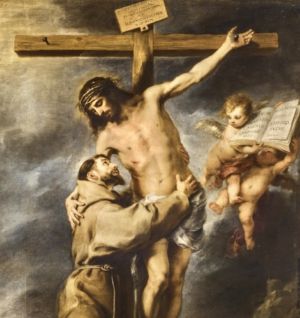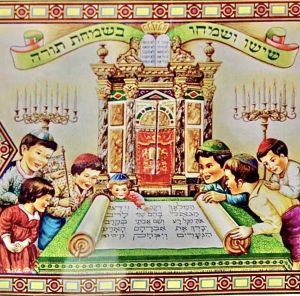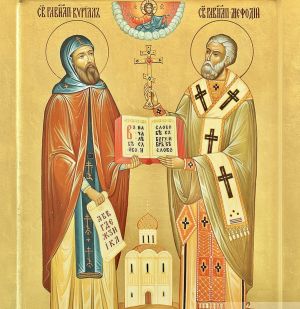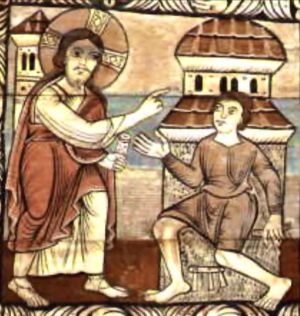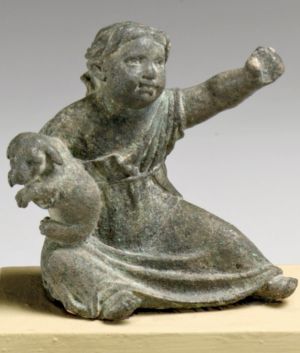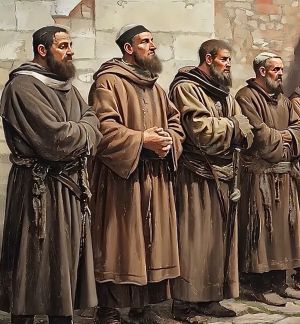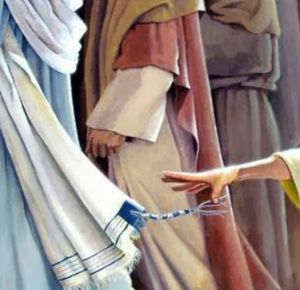
Teresa Girolami
Teresa Girolami è laureata in Materie letterarie e Teologia. Ha pubblicato vari testi, fra cui: "Pellegrinaggio del cuore" (Ed. Piemme); "I Fiammiferi di Maria - La Madre di Dio in prosa e poesia"; "Tenerezza Scalza - Natura di donna"; co-autrice di "Dialogo e Solstizio".
Francis and Herod's leaven
Even Francis, when he was still in the world and faced with the unravelling of his specific call from the Lord [and subsequent conversion] had to struggle against Herod's leaven: lust for power and glory.
It was God, then, who enlightened him and made him distance himself from what was leading him astray.
"A nobleman from Assisi, eager for money and glory, took up arms to go and fight in Apulia. On hearing of this, Francis was seized with a thirst for adventure. So, in order to be created a knight by a certain Count Gentile, he prepares a trousseau of precious cloths; for if he was less rich than his fellow citizen, he was, however, more generous than him in spending [...]" (FF 1399).
But the Lord, knowing him to be so eager for glory and power, visited him with a vision.
While he was sleeping, a man appeared to him who, calling him by name, led him to a beautiful palace where weapons and objects of warfare were seen hanging on the wall.
Francis asked to whom all these things and the palace belonged. He was answered that it all belonged to him and his knights.
He woke up, all happy, interpreting the dream according to worldly criteria. Having not yet fully tasted the spirit of God, he imagined he would become a prince.
So, interpreting it as an omen of good fortune, he wanted to leave for Apulia, to be created a knight by that Count.
When he arrived in Spoleto, he began to feel unwell and in his sleep he heard a voice asking him where he was going. Francis told him of his ambitious project.
"He said, «Who can be of more use to you: the master or the servant?» He answered: «The master».
The One resumed: «Why then do you abandon the master to follow the servant, and the prince for the subject?»
Then Francis asked, «Lord, what do you want me to do?»
Concluded the voice: «Return to your city and there you will be told what you must do; for the vision that has appeared to you must be interpreted in a different sense».
[...] The morning dawned and in great haste he diverted his horse to Assisi, happy and exultant" (FF 1401).
Thus Francis abandoned the leaven of Herod to adhere to Christ, becoming its great Herald, courageous and tenacious.
Tuesday 6th wk. in O.T. (Mk 8,14-21)
What Sign?
In the verses from Mark's Gospel, Jesus is disgusted by the hypocritical Pharisees, who start arguing with Him asking for a sign from heaven to test Him, after the miracle of the multiplication of the loaves and fishes.
All this causes a deep disappointment in Christ.
Francis of Assisi followed Jesus not because of the wonders that the Lord performed but by Faith; won over by his Gospel, by the Beatitudes enunciated on the Mount, by his having died and risen again - for him.
This had attracted him and made him fall in love with the bare Gospel parable, without 'ifs' and 'buts'.
The Sources, the jewel of the Franciscan path, help us to understand.
«Therefore all those who saw the Lord Jesus according to humanity, but did not see or believe, according to the spirit and divinity, that he is the true Son of God, are condemned».
And so now all those who see the sacrament, which is sanctified through the words of the Lord above the altar in the hands of the priest, under the species of bread and wine, and do not see nor believe, according to the spirit and divinity, that he is truly the most holy body and blood of our Lord Jesus Christ, are condemned, for it is The Most High Himself who bears witness to this, when He says:
«This is my body and blood of the new covenant [which will be shed for many]», and again:
«Whoever eats my flesh and drinks my blood has eternal life» (FF 142).
If the Presence of the Son of God is not enough to make one believe, what other sign can be given to this generation?
Francis' faith is the best response to worldly insipience.
«And the Lord gave me so much faith in the churches, that I simply prayed» and said:
«We adore you, Lord Jesus Christ, even in all your churches which are throughout the whole world, and we bless you, because by your holy cross you have redeemed the world» (FF 111 - Testament of St Francis).
This is the only Sign!
«And He groaning in His spirit says: Why does this generation seek a sign?» (Mk 8:12a)
Monday, 6th wk. in O.T. (Mk 8,11-13)
Beyond the law, higher Justice
This Sunday's long passage, taken from the Gospel of Matthew, addresses various themes.
Among these is the urgency of overcoming the legalism of the scribes and Pharisees by carefully doing God's will.
Almost without realising it, Francis was a great spiritual teacher.
By grace, he was convinced that justice always goes hand in hand with mercy.
A justice far removed from grim rigidity, eager to express itself in the fulfilment of God's will, always respecting one's brother.
The Franciscan Sources teach us a great deal about this.
"If it ever happened that a brother uttered a word that could hurt someone, his remorse would not allow him to rest until he confessed his mistake, humbly throwing himself to the ground and begging the offended party to put his foot on his mouth.
If that brother refused to do so, when the offender was his superior, he commanded him to put his foot on his mouth; when he was a subject, he had the person in charge order him to do so.
In this way, the friars committed themselves to banishing all resentment and incompatibility and to preserving mutual love intact.
They did everything possible to replace every vice with the corresponding virtue, inspired and assisted in this by the Grace of Jesus Christ" (FF 1449).
Justice and Mercy are to be sought, to be asked of God first and foremost in prayer and silence, for a new heart is a gift from the Lord, a continuous exodus.
In the Rule of the Hermits, written by Francis, we read:
«And these [the friars] shall have a cloister, in which each shall have his own little cell, in which he can pray and sleep [...] and they shall rise for matins, and first of all seek the kingdom of God and his Justice» (FF 137).
In the same Praises of God Most High, Francis emphasises that God is Justice:
«[...] You are Justice,
You are temperance,
You are all our wealth in sufficiency» (FF 261).
The Poor man, knowing that the Lord-Justice called for more than just a manner of justice, worked tirelessly for the Kingdom of Heaven and tried to teach his friars to do the same.
He never forgot that mercy always prevails in God's judgement.
«For I tell you that unless your righteousness surpasses that of the scribes and Pharisees, you will not enter into the Kingdom of Heaven» (Mt 5:20).
6th Sunday in Ordinary Time, year A (Mt 5:17-37)
Two by two for the Kingdom
«And he sent two by two before him into every city and place where he was about to go» (Lk 10:1).
This passage from the Gospel of Luke was well impressed in the memory of Francis of Assisi and, preparing his brothers for the mission, he expressed it thus:
"In the name of the Lord, go two by two through the streets, with dignity, keeping silence from morning until after the third hour, praying in your hearts to the Lord.
No frivolous and vacuous talk among yourselves, for although you are on the way, your behaviour must be as collected as if you were in a hermitage or in a cell.
Wherever we are or move, we take our cell with us: brother body; the soul is the hermit who dwells in it to pray to God and meditate.
And if the soul does not live serenely and solitarily in its cell, very little use is served to the religious by a cell erected by the hand of man" (FF 1636).
Thus prepared, the brothers went out to announce the Good News.
In the Sources we read again:
"He insisted that the brothers should not judge anyone, nor look down on those who live in luxury [...] for God is our Lord and theirs, and he has the power to call them to himself and to make them righteous [...].
And he added: 'Such must be the behaviour of the brothers in the midst of the people, that whoever hears and sees them, may be led to glorify and praise the heavenly Father'.
It was his fervent wish that both he and the brothers should abound in good works, by which the Lord is praised. And he said:
"The peace you proclaim with your mouth, have it even more abundantly in your hearts.
Do not provoke anyone to anger or scandal, but let all be drawn to peace, goodness, concord by your meekness.
This is our vocation: to heal the wounds, to bind up the broken, to call back the lost.
Many, who seem to us members of the devil, may one day become disciples of Christ" (FF 1469).
The Poor Man of Assisi, before communicating the Word of God to the people, wished for peace, saying:
"May the Lord give you Peace" (FF 359).
This he always announced with great devotion to those who came to him.
And it often happened that, with God's grace, the enemies of Peace and of their own salvation became children of Peace.
Preaching and healing the sick he met, he would say:
«The kingdom of God is at hand» (Lk 10:9).
Many were thus urged to repent and follow Christ and disciple Him.
St Cyril and Methodius, 14 February (Lk 10:1-9)
Splinters of light for the path of many
Mark recounts the healing of a deaf man who stutters: Jesus calls him aside, puts his fingers in his ears and touches his tongue with saliva.
Even the witnesses of the Word of God, those who resemble Christ in life, are made capable of healing the sick of all kinds by Him.
Francis had this charisma from God. We read in the Sources:
"In Città della Pieve there was a young beggar, deaf and mute from birth. His tongue was so short and thin that it seemed to be cut off at the root [...].
A certain Mark gave him hospitality for the love of God, and the young man, feeling that he loved him, made a habit of staying with him.
One evening during dinner, Mark said to his wife in the presence of the young man:
"If blessed Francis would give this boy back his hearing and speech, that would be a great miracle".
Then he added: "I vow to God that if Francis deigns to perform this miracle, I will keep this boy at my own expense all his life".
A truly marvellous thing: at that very instant the boy's tongue swelled and he began to speak, saying: 'Glory to God and St Francis, who have given me hearing and speech!
Yes, the Lord does everything well, always!
He gives his prophets what they sensitively attest with their lives, transforming them into splinters of Light for the path of many.
The Lord also uses his friends for those who do not want to hear and obey the Word, bringing them back to listening.
In the Sources we find a significant episode, taken from the Second Life of Celano.
"Another friar did not want to obey the Saint's vicar, but followed a confrere as his superior.
The Saint, who was present, admonished him by means of a third person, and he threw himself at the feet of the vicar and, leaving the master whom he had chosen, promised obedience to the one whom the Saint assigned to him as his superior.
Francis heaved a deep sigh, and turned to his companion, whom he had sent to warn him:
"I saw, brother," he said to him, "on the back of the disobedient friar a devil clasped around his neck.
Subdued and held in bridle by such a knight, after having shaken the bite of obedience, he let himself be led by his will and whim.
But when I prayed to the Lord for him, immediately the demon turned away in confusion'.
So penetrating was this man's gaze, that although he had weak eyes for material things, he had discerning ones for the spirit [...].
There is, I say, no other choice: either to carry a light burden, by which you yourself will rather be carried, or to be a slave to iniquity" (FF 620).
«He has done all things well, and makes the deaf to hear and the dumb to speak» (Mk 7:37)
Friday 5th wk. in O.T. (Mk 7,31-37)
Humble and indomitable Faith
In the passage from Mark, the sincere and indomitable faith of a Syro-Phoenician woman is narrated, who asks and obtains from Jesus - precisely by Faith - the deliverance of her little daughter.
The Holy Spirit has a way of bestowing charisms on the small and simple; thus He gave Francis the healing power from many evils and the power of deliverance from the evil one, the tyrant of so many creatures.
Wisdom, which is nobler than all motion and penetrates everywhere by its purity, communicates itself to holy souls and forms friends of God and prophets. Thus in the soul of the Poor Man.
The Sources illustrate numerous healings and deliverances of the possessed by Francis, and describe the growing faith in those who had received the saving gift.
Yes, because the evangelical consequence of these healings is the extensive manifestation of people's active belief, in a sincere and humble manner.
We read in the Sources:
"Once the Saint appeared to a woman from Narni, who was furious and so out of her mind that she did and said frightful and filthy things, and said to her:
«Make a sign of the cross».
She replied that she was prevented from doing so.
Then Francis himself impressed it on her forehead, and instantly she was freed from madness and all demonic influence.
Countless have been the unhappy men and women who, tormented in various ways and by manifold deceptions by demons, were delivered by virtue of the merits of the glorious father" (FF 555).
Francis was very attentive to the ills of the people he met.
He was often seized with great compassion when he saw a creature asking for help in an exasperated and insistent manner.
The documentation of the Sources is permeated by this tenacious and humble logic of the Saint, who, even before the concrete fact, perceived in his innermost being the profound need for the complete salvation of the other.
He believed, in fact, that when a man takes pity on another man, there, God is resurrected, and the Good News is proclaimed.
«For this word of yours, go; the devil has gone out from your daughter» (Mk 7:29)
Thursday, 5th wk. in O.T. (Mk 7,24-30)
From within. Purity of heart
Jesus teaches the crowd and explains: what makes one impure is what comes from the heart.
Francis, pure in heart, transparent in his intentions and intentions, had also introduced in the Admonitions he wrote a clear guiding call for his brothers - on the merits of behaviour.
In the Sources:
«When we live according to the flesh, the devil wants to take away from us the love of [our Lord] Jesus Christ and eternal life, and wants to lose himself with everyone in hell; for we through our own fault are ignoble, miserable, and contrary to good, ready instead and willing for evil, because, as the Lord says in the Gospel: Out of the heart proceed and come forth evil thoughts, adulteries, fornications, murders, thefts, covetousness, wickedness, deceit, impudiciousness, envy, false witness, blasphemy, [pride], foolishness. All these evil things proceed from within the heart of man, and it is these things that defile man.
Now instead, since we have left the world, we have nothing to do but to follow the will of the Lord and to please Him alone» (FF 57).
In this way he instructed his brothers in the way of purity.
And in the Vita Prima of Celano, regarding his brothers:
"And this is what they always used to do when they came to him; they did not hide even the slightest thought and involuntary motions of their souls from him, and after having accomplished all that was commanded them, they still considered themselves useless servants.
And truly «purity of heart» filled that first group of the blessed Francis' disciples to such a degree that, although they knew how to do useful, holy and upright things, they showed themselves utterly incapable of drawing vain pleasure from them.
Then blessed Francis, clasping his sons to himself with great love, began to manifest to them his plan and what the Lord had revealed to him" (FF 370).
Magnificence of the little ones!
«What comes out of man, that makes man unclean» (Mk 7:20)
Wednesday 5th wk. in O.T. (Mk 7,14-23)
Woodland creatures
Mk highlights the comparison between Jesus and the scribes and Pharisees, whom He reproaches for the hypocrisy of appearances - worshipping their tradition instead of God Himself - and neglecting the commandment of Love.
Francis of Assisi detested appearances, rituals observed for mere vanity, honour to God given with the lips and not with the adherence of the heart; failing the commandment of Love, the Substance of God.
He resented the hypocrisy of 'ablutions' that misunderstand the charity to be extended to one's neighbour.
He urged his brothers to bear witness to the Gospel with boldness, proclaiming the Word at every opportunity; without kneeling to abstract precepts.
Looking at the episodes that recall this new sense of purity, a passage from the Sources is particularly interesting:
The brethren, in their all-interior ideal "When they met a church or a cross along the way, they would bow down to recite a prayer and say devoutly:
«We adore thee, O Christ, and bless thee for all thy churches scattered throughout the world, for thou hast redeemed them by thy holy cross».
They were convinced, in fact, that they were in a holy place, wherever they encountered a cross or a church.
Everyone who saw them was greatly astonished, because of their way of dressing and living that was so different from any other: they looked like woodland creatures.
Wherever they entered, be it a city, a castle, a village, a dwelling, they proclaimed peace, exhorting men and women to fear and love the Creator of heaven and earth, and to keep his commandments.
There were those who listened to them willingly and those who, on the contrary, mocked them.
Mostly they were pelted with a storm of questions [...].
Although it was annoying to answer so many questions, they confessed with simplicity that they were penitents from Assisi [...]" (FF 1441).
Free from ceremonial, they proclaimed the Kingdom of God with authenticity and not only with their lips, but with the testimony of their lives, which emphasised the Word read and prayed.
They were not slaves to useless observances of custom, but tenacious servants of the Gospel at all costs.
Jesus' warning was not directed at them:
«Setting aside the commandment of God, keep the tradition of men» (Mk 7:8).
Rather, this admonition concerns those who take glory from one another, neglecting what pleases God.
«Artfully you set aside the commandment of God, to observe your own tradition» (Mk 7:9)
Tuesday, 5th wk. in O.T. (Mk 7,1-13)
Innumerable Healings
The evangelist Mk shows how, as Jesus passed by, people everywhere flocked to carry on stretchers the sick to be healed.
Following in the footsteps of the Master, Francis performed healings in every place.
He had received special charisms in favour of the people, who wanted to touch him to be healed.
In the Sources, there is an interesting and moving episode in this regard.
In Susa, a young man from Rivarolo Canavese, named Ubertino, who had entered the Order of Friars Minor, after a terrible fright, became insane and was struck by paralysis in his right side, losing sensibility, motion, hearing and speech.
The brothers were distressed to see him lying in his bed in that state.
On the eve of St Francis he had a moment of lucidity and began to invoke his father in a heartfelt way.
At the hour of matins, while all the brothers were in choir, the blessed father appeared to the novice in the infirmary, causing a great light to shine in the house.
The father placed his hand on his right side, running it down to his feet; he put his fingers in his ear and made a special sign on his right shoulder, saying:
"This will be for you the sign that God, using me, whom you wished to imitate by entering Religion, has restored you to perfect health" (FF 1325).
Then he put on the girdle and said to him:
"Get up and go to church to devoutly celebrate, together with the others, the prescribed praises of God" (FF 1325).
The young man tried to touch him with his hands and kiss his feet, as a sign of thanksgiving, but the blessed father disappeared from his sight.
The young man then went into the church to celebrate the praises now healed, to the amazement of the onlookers.
Francis, an apostle of resurrection, in life and in death worked many healings in the bodies and hearts of many people.
These wanted to touch his tunic, his cloak, his hood, firmly believing that they could be healed and regain faith in the God who had sent him.
«And they begged him to touch even the fringe of his cloak; and as many as touched him were saved» (Mk 6:56)
Monday, 5th wk. in O.T. (Mk 6,53-56)
Light that makes us see. Salt that gives flavour.
Jesus calls us to bear essential witness, to give our whole lives, to be salt and light for everyone.
Francis, in his journey of faith, sought to please God with a flavourful existence and a luminous life, irrigated by Grace.
Chiara herself, always united with her Spouse Jesus, was prophetically chosen to be what her name meant: light, brightness for the world.
Their witness shines forth in the Sources.
In Brother Elia's Letter, written immediately after Francis' death, the experience of the friars alongside their father and the fragrance of life they breathed is evident.
"Truly, the presence of our brother and father Francis was the true light, not only for us who were his companions in the same profession of life, but also for those who were far away.
He was, in fact, a light raised up by the true light, the one that illuminates those who were in darkness and sat in the shadow of death, to direct their steps on the path of peace.
This he did, like the true meridian light.
The light that came from above illuminated his heart and warmed his will with the fire of his love" (FF 307).
This is the experience of those who knew him closely.
But Clare herself, in the correspondence compiled for the wonderful dialogue with Agnes of Bohemia, offers passages that are the measure of her heart and her luminous life.
In the fourth letter we read:
«And since this vision of him is the splendour of eternal glory, the brightness of everlasting light and a spotless mirror, every day bring your soul, O Queen, bride of Jesus Christ, to this mirror and gaze continually at your face in it, so that you may adorn yourself entirely, inside and out, clothed and surrounded by variety, and be equally adorned with the flowers and garments of all virtues, as befits you, beloved daughter and bride of the supreme King» (FF 2902).
In Francis and Clare, purity had reached such levels that the whole machinery of the world, as St Bonaventure says, was placed at the service of the sanctified senses of these two splendid figures.
In their poor and simple existence, everything became a clear and profound testimony to the praise of God.
Clare of Assisi was, like her master and father, the incarnate splendour of the Holy Word. With her endless clarity, she was an echo of the Risen One, Light from Light.
Francis was salt that made the daily life of the poor and the rich savoury; salt that revolutionised his era and that still today, eight hundred years after his death, gives meaning to the life of every person, questioning them about what they seek and follow.
His madness - as it was considered in his day - proved to be evangelical wisdom.
His salt still attests to the validity of the path embraced in unity with Christ; his choice is the flavour of salt in a sometimes insipid world.
«Let your light shine before others, so that they may see your good works and give glory to your Father in heaven» (Mt 5:16)
5th Sunday in O.T. A (Mt 5:13-16)
Only through Christ can we converse with God the Father as children, otherwise it is not possible, but in communion with the Son we can also say, as he did, “Abba”. In communion with Christ we can know God as our true Father. For this reason Christian prayer consists in looking constantly at Christ and in an ever new way, speaking to him, being with him in silence, listening to him, acting and suffering with him (Pope Benedict)
Solo in Cristo possiamo dialogare con Dio Padre come figli, altrimenti non è possibile, ma in comunione col Figlio possiamo anche dire noi come ha detto Lui: «Abbà». In comunione con Cristo possiamo conoscere Dio come Padre vero. Per questo la preghiera cristiana consiste nel guardare costantemente e in maniera sempre nuova a Cristo, parlare con Lui, stare in silenzio con Lui, ascoltarlo, agire e soffrire con Lui (Papa Benedetto)
In today’s Gospel passage, Jesus identifies himself not only with the king-shepherd, but also with the lost sheep, we can speak of a “double identity”: the king-shepherd, Jesus identifies also with the sheep: that is, with the least and most needy of his brothers and sisters […] And let us return home only with this phrase: “I was present there. Thank you!”. Or: “You forgot about me” (Pope Francis)
Nella pagina evangelica di oggi, Gesù si identifica non solo col re-pastore, ma anche con le pecore perdute. Potremmo parlare come di una “doppia identità”: il re-pastore, Gesù, si identifica anche con le pecore, cioè con i fratelli più piccoli e bisognosi […] E torniamo a casa soltanto con questa frase: “Io ero presente lì. Grazie!” oppure: “Ti sei scordato di me” (Papa Francesco)
Thus, in the figure of Matthew, the Gospels present to us a true and proper paradox: those who seem to be the farthest from holiness can even become a model of the acceptance of God's mercy and offer a glimpse of its marvellous effects in their own lives (Pope Benedict))
Nella figura di Matteo, dunque, i Vangeli ci propongono un vero e proprio paradosso: chi è apparentemente più lontano dalla santità può diventare persino un modello di accoglienza della misericordia di Dio e lasciarne intravedere i meravigliosi effetti nella propria esistenza (Papa Benedetto)
Man is involved in penance in his totality of body and spirit: the man who has a body in need of food and rest and the man who thinks, plans and prays; the man who appropriates and feeds on things and the man who makes a gift of them; the man who tends to the possession and enjoyment of goods and the man who feels the need for solidarity that binds him to all other men [CEI pastoral note]
Nella penitenza è coinvolto l'uomo nella sua totalità di corpo e di spirito: l'uomo che ha un corpo bisognoso di cibo e di riposo e l'uomo che pensa, progetta e prega; l'uomo che si appropria e si nutre delle cose e l'uomo che fa dono di esse; l'uomo che tende al possesso e al godimento dei beni e l'uomo che avverte l'esigenza di solidarietà che lo lega a tutti gli altri uomini [nota pastorale CEI]
St John Chrysostom urged: “Embellish your house with modesty and humility with the practice of prayer. Make your dwelling place shine with the light of justice; adorn its walls with good works, like a lustre of pure gold, and replace walls and precious stones with faith and supernatural magnanimity, putting prayer above all other things, high up in the gables, to give the whole complex decorum. You will thus prepare a worthy dwelling place for the Lord, you will welcome him in a splendid palace. He will grant you to transform your soul into a temple of his presence” (Pope Benedict)
In the crucified Jesus, a kind of transformation and concentration of the signs occurs: he himself is the “sign of God” (John Paul II)
In Gesù crocifisso avviene come una trasformazione e concentrazione dei segni: è Lui stesso il "segno di Dio" (Giovanni Paolo II)
duevie.art
don Giuseppe Nespeca
Tel. 333-1329741
Disclaimer
Questo blog non rappresenta una testata giornalistica in quanto viene aggiornato senza alcuna periodicità. Non può pertanto considerarsi un prodotto editoriale ai sensi della legge N°62 del 07/03/2001.
Le immagini sono tratte da internet, ma se il loro uso violasse diritti d'autore, lo si comunichi all'autore del blog che provvederà alla loro pronta rimozione.
L'autore dichiara di non essere responsabile dei commenti lasciati nei post. Eventuali commenti dei lettori, lesivi dell'immagine o dell'onorabilità di persone terze, il cui contenuto fosse ritenuto non idoneo alla pubblicazione verranno insindacabilmente rimossi.



